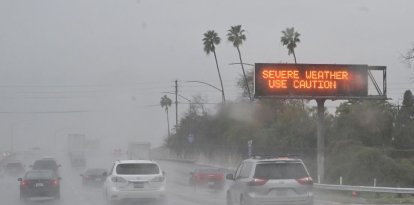Americans' fear for personal safety is the highest in 30 years
This was found in a survey conducted by Gallup, which has been asking this question since 1965.

Wikimedia Commons
Americans are afraid to walk alone near their homes at night. This was found in a survey conducted by Gallup, whose results regarding fear for personal safety were the highest in 30 years. The pollster has asked the same question every year since 1965, and 2023 was the worst year since 1993, when "one of the worst crime waves in the history of the United States" occurred.
According to the survey, "40% are afraid to walk alone at night near home, highest in three decades. The figure contrasts with the average, which usually ranges between 29% and 39%.
To date, the highest number recorded was in 1982, when 48% of Americans perceived themselves as unsafe. "That was toward the end of another high-crime period and as an alarmingly high murder rate in New York City was garnering widespread attention," the report added.
In turn, the survey, conducted during the month of October, measured that Americans see crime as a "serious" problem and perceive that it has worsened in recent years. Regarding specific crimes, identity theft raised concern in 72% of respondents, followed by car theft/vandalism (50%) and home burglary without the owner being present (44%).
This fear for personal safety has begun to directly influence the behavior of Americans, who are starting avoid or limit behaviors due to this fear.
"Americans may also be missing out on entertainment or social interactions, as fear of crime prevents large segments from attending concerts and other crowded events (28%) and talking to strangers (28%)," the survey explained.
Additionally, "Respondents were shown a list containing these precautionary behaviors and asked to select all that apply to them. Overall, 66% of adults have avoided at least one of the activities due to fear of crime, while 34% say they have avoided none of them."
Finally, the fear of being a victim of crime is greater in low-income households than in households earning more than $40,000 a year. As for other factors, it is higher among residents who live in cities than in the suburbs or rural areas.
RECOMMENDATION





















